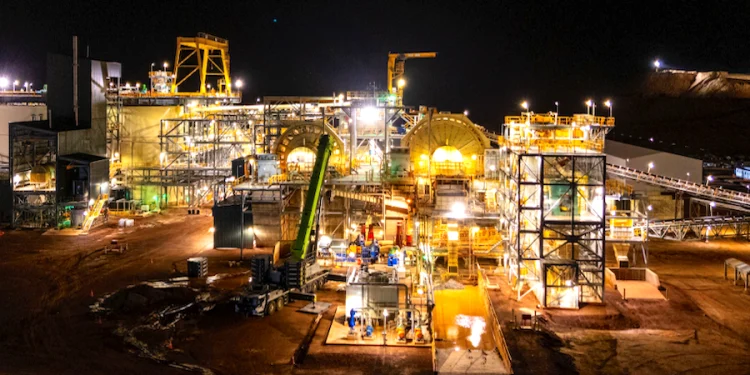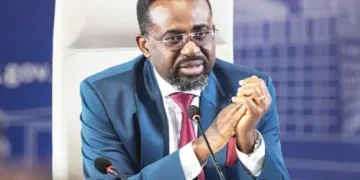Burkina Faso Seeks to Ease Worries Around Mining Stake Plans
Burkina Faso has moved to reassure investors that its request to acquire an additional 35% stake in West African Resources’ (ASX: WAF) Kiaka gold mine is an option, not a demand, under the country’s new mining framework.
Speaking at a mining conference in Australia, Mamadou Sagnon, director-general of the mining registry, explained that the Mining Code introduced in July last year allows the state to secure a minimum 30% paid interest in mining projects, in addition to its 15% free-carried stake. The paid portion is linked to exploration and feasibility costs rather than the mine’s market valuation.
The Code also gives the government and local investors the right to acquire further equity on commercial terms.
“In the case of West African Resources, the government addressed a letter to solicit the opening of participation up to 35%,” Sagnon said. “For the moment, it is a solicitation – it is not forcing.”
Sagnon stressed that the measure was intended to strengthen confidence in the sector, rather than deter foreign capital.
He argued that state participation would boost confidence rather than drive capital away. “We believe that if the State is in the participation of the company, there will be more confidence to stay in the country and make more investment,” he said.
Shares in West African Resources have been halted since last Thursday. The company had previously announced trading would resume Monday.
Regional changes
Investor unease reflects broader concerns about resource nationalism in West Africa, where governments are revising mining codes to capture more local benefit. Burkina Faso’s neighbours, including Mali, have already shaken investor sentiment with new rules and political instability.
WAF’s general manager of sustainability, Mirey Lopez, declined to comment beyond referring stakeholders to the company’s announcements. “We are in dialogue with the government and we are looking forward to a resolution,” she said during her presentation at the mining conference.
Burkina Faso, Africa’s fourth-largest gold producer, has already moved major assets into its new state-owned mining company, Société de Participation Minière du Burkina (SOPAMIB).
In June, five gold mines and exploration permits, previously held by Endeavour Mining and Lilium, were transferred to SOPAMIB. The push followed the nationalisation of the Boungou and Wahgnion mines in August 2024 for about $80 million, far below their estimated $300 million value.
Newly producing
West African Resources poured first gold at Kiaka in June. The mine is now in production and is expected to average 234,000 ounces annually for 20 years starting in 2025, generating roughly $795.6 million per year at current prices.
Last week, WAF confirmed that it had aligned the equity structure of its Sanbrado, Kiaka and Toega projects with the new Code, raising the government’s free-carried stake in each to 15%.
The company also revealed that Burkina Faso had enforced a mandatory dividend rule. In August, WAF’s subsidiary Somisa, owner of Sanbrado, declared a $98.35 million priority dividend to the government, representing 15% of retained earnings through 2024. WAF expects Somisa, Kiaka SA and Toega SA will all be required to distribute 15% of profits annually, with WAF entitled to repatriate the remainder.
WAF also revealed last week that the Burkina Faso government had enforced a non-discretionary dividend rule.
Strong leader at the helm
The mining reforms reflect the growing influence of Ibrahim Traoré, the 37-year-old military leader who seized power in 2022 and declared himself president. Traoré has pushed for greater state control of resources while casting his rule as part of a Pan-African, anti-Western revival.
His supporters hail him as a defender of sovereignty. In April, thousands rallied in Ouagadougou after an alleged counter-coup attempt failed. Demonstrations spread to London, Kingston and Montego Bay, where diaspora groups praised him as a “Black liberator.”
Meanwhile, Orezone Gold (ASX, TSX: ORE), which operates the Bomboré mine, also halted trading after the news of the government’s request at Kiaka. Following weekend talks, Orezone confirmed Tuesday that authorities have no plans to purchase an interest in Bomboré, calling the Kiaka situation “specific and not a reflection of any broader intent.”








